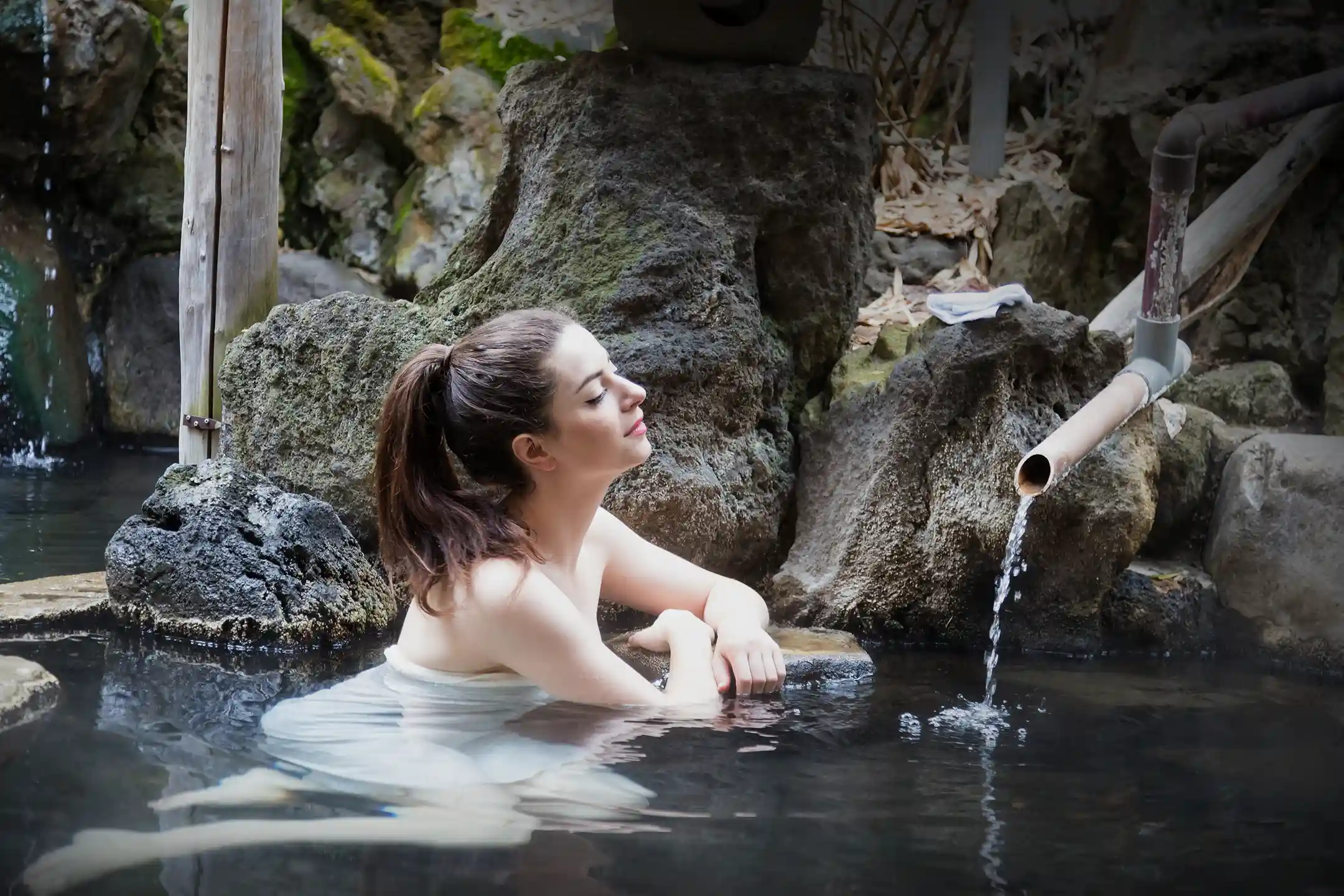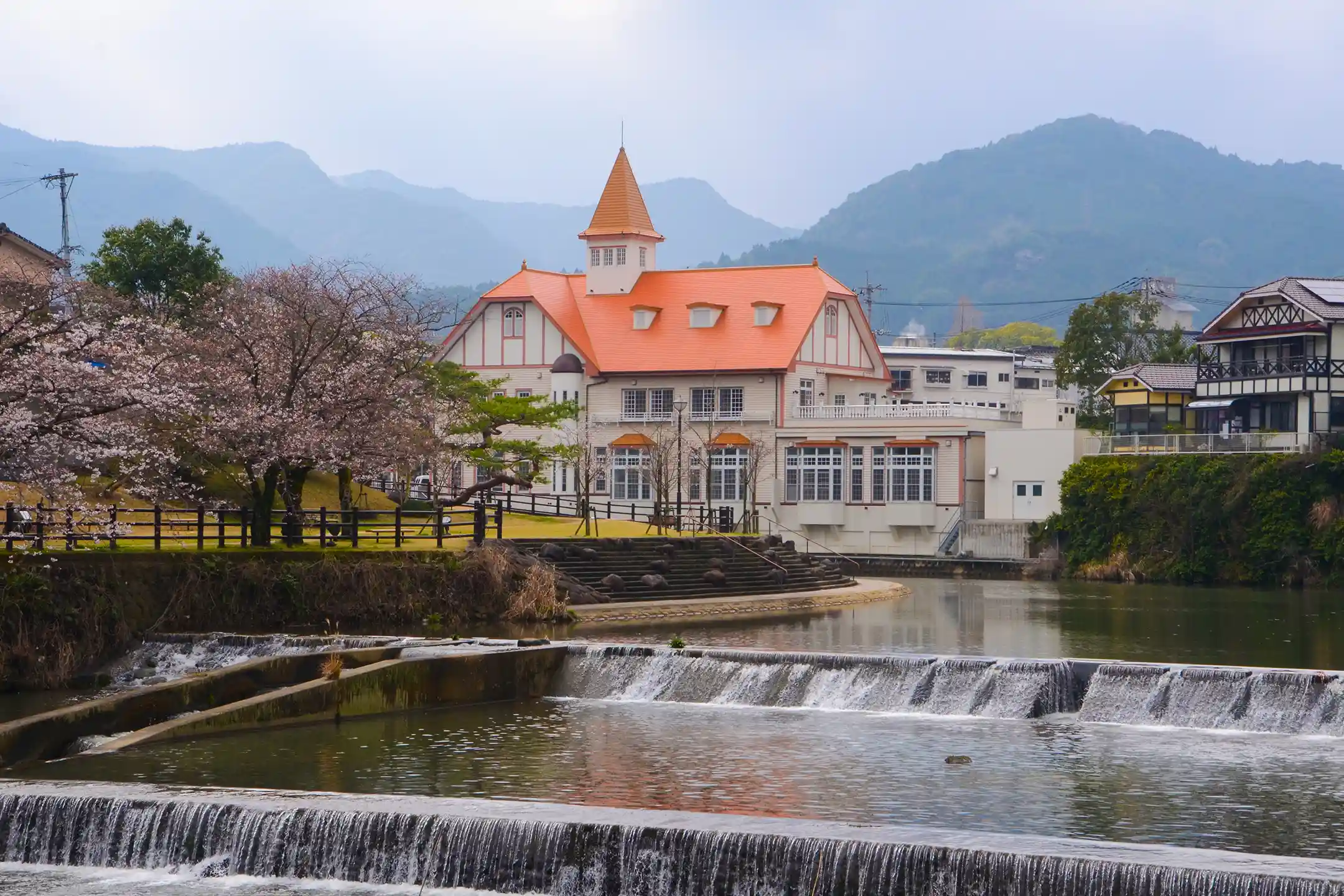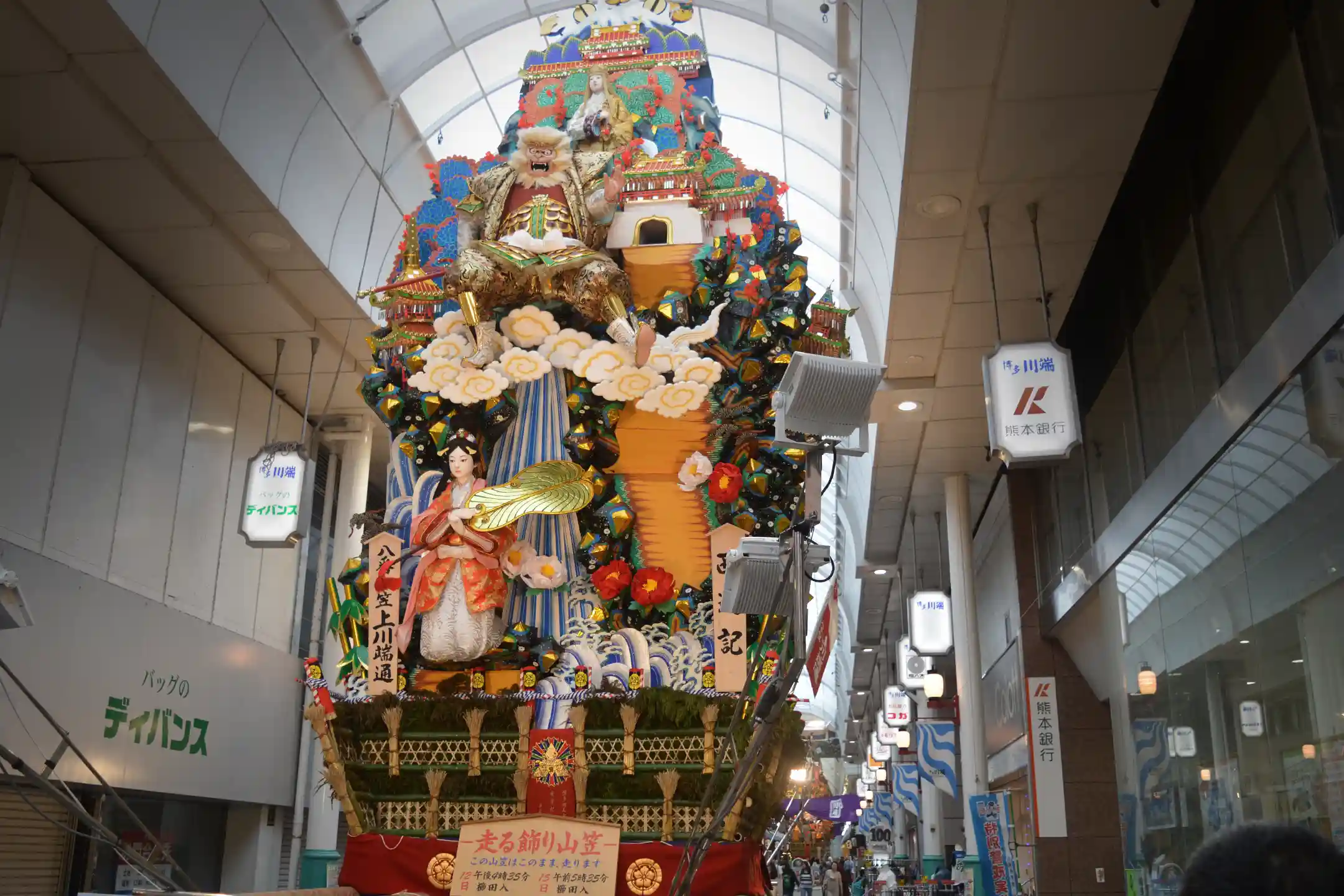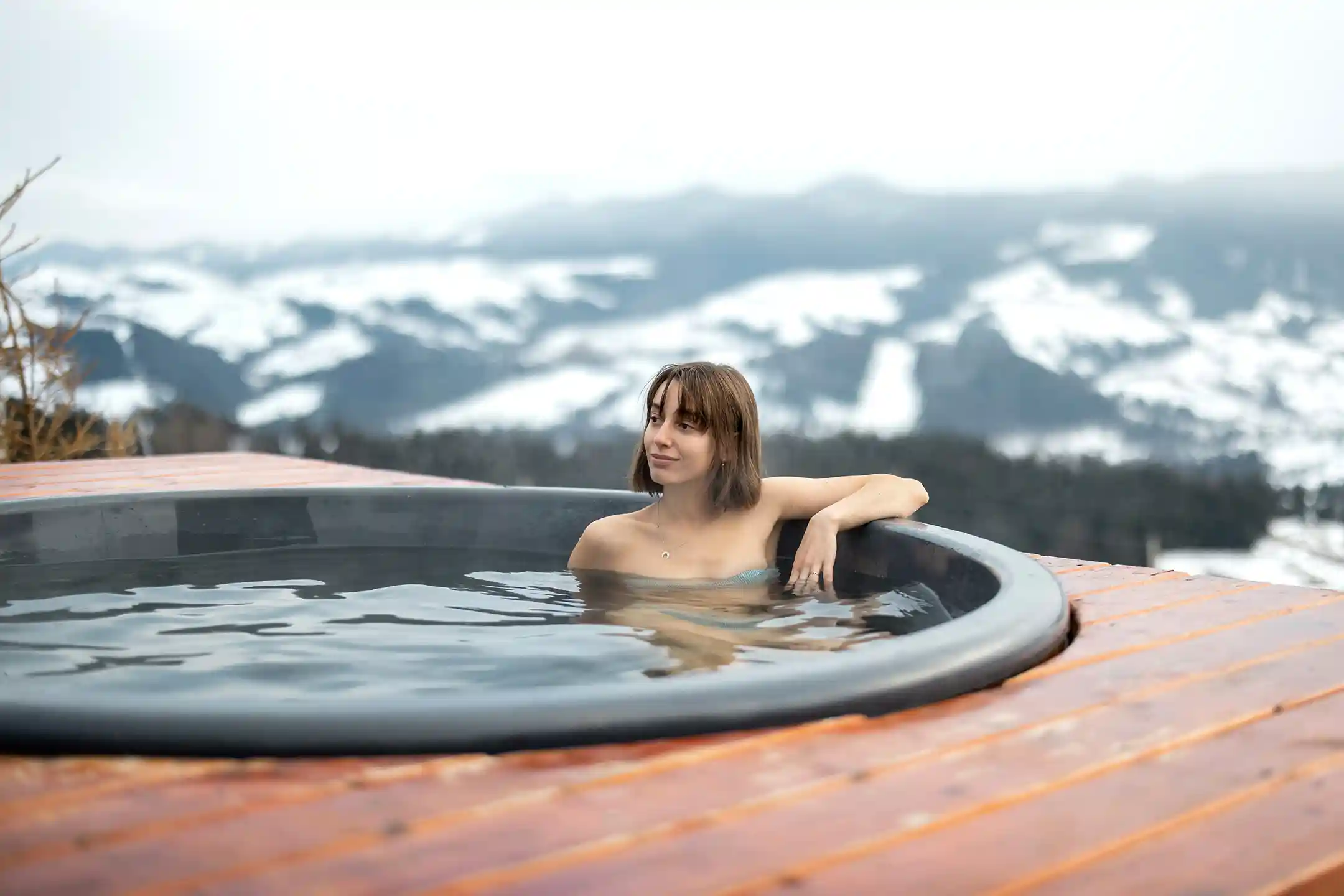The History and Cultural Background of Japanese Spa Hotels
The Roots of Hot Springs and Ryokan Culture
Compared with Western spa traditions, spa hotels in Japan extend far beyond simple relaxation. They are deeply interwoven with history, spirituality, and a philosophy of harmony. For instance, Europe’s spa culture traces back to the communal baths of ancient Rome, evolving into places of health and social gathering.
In Japan, hot springs (onsen) carry meanings of reverence for nature and purification rituals, shaped by Shinto and Buddhist influences. Hot spring regions were considered sacred, where bathing refreshed both body and mind while fostering a sense of oneness with the natural world. This kind of profound encounter is only possible when one sets aside the assumption that one’s own culture is the “correct” one, and instead respects other perspectives.
From the Heian period, when nobles first enjoyed bathing, this culture gradually spread to common people. It gave birth to Japan’s unique form of hospitality—the ryokan—which continues to inspire today’s Japanese spa hotels. The quietude and introspection of onsen culture often leave overseas visitors both surprised and deeply moved (*1).
Regional Architecture and Craftsmanship
The architecture and interiors of Japanese spa hotels reflect natural surroundings, climate, and local craftsmanship. Kyoto’s sukiya-style emphasizes “space” and “simplicity,” unlike the ornate symmetry often prized in Western aesthetics.
Harmony with the seasons and appreciation of natural aging are central values. Plaster artisans’ work and traditional crafts imbue hotel spaces with a sense of time and story. In the snow country of Tohoku or Hokuriku, guests can sense the wisdom of adapting to harsh climates and the solidarity of local communities.
Noticing not only surface design but also the cultural values embedded within makes your journey through spa hotels in Japan more meaningful (*2).

Japanese Spa Hotel Spaces Where Design Meets Comfort
The Harmony of Wabi-Sabi and Modern Luxury
At Japanese spa hotels, the traditional aesthetic of wabi-sabi blends seamlessly with modern comfort. Bamboo, washi paper, and natural wood create spaces that guide guests toward stillness and authenticity. Unlike the glitter and grandeur of many Western hotels, this is an “aesthetic of subtraction.” Uncluttered design frees the mind and allows for precious introspection.
For many overseas visitors, the quiet beauty that locals take for granted feels both refreshing and transformative.
Spaces Where Technology and Silence Coexist
Though equipped with cutting-edge smart facilities, Japanese spa hotels treat silence and privacy as the ultimate luxuries. Unlike the lively, social energy of many Western hotels, in Japan carefully designed quietness embodies refinement.
Soundproofing and contactless systems are not only conveniences but also thoughtful gestures, creating the space to reflect and reconnect with yourself. Experiencing such values at spa hotels in Japan reveals how culture shapes even the smallest details (*1).

Cultural Activities You Can Experience at Japanese Spa Hotels
Traditional Workshops: Tea Ceremony and Calligraphy
Japanese spa hotels provide programs to deepen cultural understanding. Tea ceremony is less about mastering ritual than about cultivating thoughtfulness and learning from nature.
Calligraphy, too, is more than art—it is a meditative practice of focus and gratitude. Recognizing the contrast between Western individualism, which values self-expression, and Japanese traditions, which emphasize harmony and empathy, enriches cultural insights (*1).
Encounters and Exchanges with Artisans
Another hallmark of Japanese spa hotels is the chance to meet artisans. Through pottery workshops and other hands-on experiences, you can discover the warmth of craftsmanship and the beauty of imperfection. Unlike Western traditions that emphasize flawless finish, Japanese artisans embrace uniqueness. Such experiences are treasures you cannot gain from sightseeing alone (*2).
Intellectual Tourism Through Cultural Collaborations
Many spa hotels in Japan collaborate with museums and gardens. In Hakone, for example, hot springs are paired with the Open-Air Museum and landscaped gardens, sparking fresh dialogues and discoveries. Compared with Western approaches to art appreciation, Japanese experiences foster intimacy between self, nature, and creativity (*3).

Sustainability Initiatives and Choosing the Right Spa Hotel
Practical Examples of Eco-Conscious Spa Hotels
Sustainability is central to spa hotels in Japan. Local sourcing, energy-efficient design, and coexistence with nature reflect cultural values of harmony and respect.
In the West, corporate sustainability often appears as a tension between profit and ecology. In Japan, it starts with harmony between people, society, and nature. Energy reuse, plastic reduction, and food waste prevention are not obligations but acts of responsibility for future generations. Sustainable spa hotel management reflects this worldview (*1).
EV-Friendly and Eco-Mobility Options
Many Japanese spa hotels offer EV charging stations, bicycle-sharing, and public transport access. These initiatives embody a belief that eco-mobility benefits entire communities. Unlike Western cities, where eco-mobility is framed as an individual choice, in Japan it is embraced as a system for collective well-being.
Gastronomy as Part of the Healing Experience
Kaiseki: A Seasonal and Regional Expression
Dining at Japanese spa hotels is a multisensory journey. Kaiseki highlights seasonal ingredients and reflects landscapes in each dish. While Western fine dining often emphasizes service sequence, in Japan beauty lies in pauses, lingering aftertastes, and purity of ingredients. Regional tableware turns each meal into cultural storytelling (*1).

Aesthetic Dining Spaces
Dining rooms in spa hotels are curated with lighting, tableware, and music to soothe. Gentle illumination and silence transform meals into restorative experiences. Unlike many Western restaurants, the emphasis here is on space and serenity (*2).
Vegan, Macrobiotic, and Health-Conscious Menus
Many Japanese spa hotels adapt traditional cuisine to diverse dietary needs, offering vegan, macrobiotic, and allergy-friendly menus. This attentiveness embodies omotenashi—the Japanese spirit of hospitality that honors each guest’s individuality (*3).
Recommended Japanese Spa Hotels and Planning Tips
Spa Hotels Rich in Culture and Art
Across Japan, spa hotels immerse guests in local history, art, and landscapes. In Ginzan Onsen, Taisho-era inns along the riverside evoke nostalgic European charm while remaining uniquely Japanese. In Hakone, hot springs blend with contemporary art, while in Yufuin, traditional architecture harmonizes with rural scenery (*1).

Etiquette and Booking Tips
Japanese spa hotels have unique etiquette. Removing shoes or washing before entering baths reflects cultural values of cleanliness and respect. Unlike in the West, where individual freedom is prioritized, Japanese hospitality emphasizes harmony and thoughtfulness. Booking meals and activities in advance ensures a seamless omotenashi experience (*2).
Best Seasons to Visit
Japan’s changing seasons make every spa hotel stay distinct. Spring blossoms, summer greenery, autumn foliage, and winter snow all enrich the experience. Traveling with the seasons deepens your connection to both nature and culture.

Conclusion
Japanese spa hotels are far more than tourist accommodations. They are cultural spaces where history, beauty, and modern values converge.
For international guests, these stays provide a new lens to reconsider what feels “normal.” Silence, natural materials, and attentiveness reveal forms of richness rarely found in urban life. Omotenashi—rooted in respect and harmony—contrasts with Western individualism, offering profound cultural insights.
Evolving with global needs, spa hotels in Japan embrace diversity while preserving tradition. Experiencing this balance firsthand enriches your travels and broadens your worldview.
Whichever Japanese spa hotel you choose, treat it as an opportunity to “taste the differences.” You are sure to leave with insights and encounters that linger long after your journey.
Author Bio






